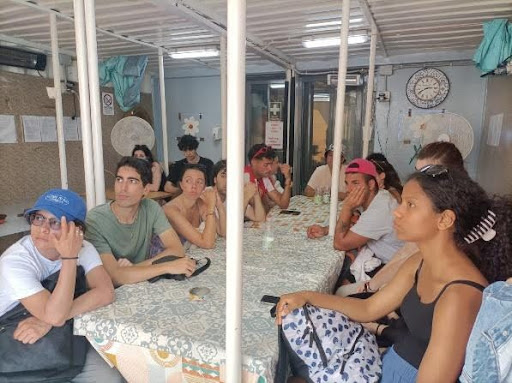- Summary
- Fact Sheet
- Synergy and Transfer
- More Information
The goal of the project is to promote the integration of disadvantaged young people between the ages of 16 and 29 who are not in education, employment or training (NEETs) by improving their skills, knowledge and experience and offering them the opportunity to make new contacts in Europe to help them integrate into the labour market and society.
Develop a pilot experience for improving the training of young NEETs aged 16-29, relying on the collaboration of key agents in the area.
Support 20 young people by providing them with counselling and designing with them training and employment itineraries that fit their profile.
Promote cultural exchange through a 4-month training and work period in Italy.
To ensure the continuity of this project through the establishment of a solid consortium and the identification of actions to meet the real and current needs of the target group in relation to the labour market
Target Groups:
Disadvantaged young people
Special support required:
Participants from disadvantaged backgrounds will be provided with intensive help and support during their placement. People with particular accessibility needs, such as those with disabilities, should have their needs assessed so that preparatory activities can be adapted accordingly. This applies, for example, to practical matters such as using public transport, the kind of accommodation they will have in the host Member State, as well as the workplaces in which they will be placed. Staff from project operators should have experience and the skills needed to deal with disadvantaged youth and the special needs of this particular target group. When working with disadvantaged young people, the nature and scope of pedagogical and labour-market interventions vary widely depending on the target group.
Innovation:
The project is carrying out a cross-border social innovation initiative.
ALMA projects are based on the transformational effect of a work-related learning experience abroad and an individual tailor-based approach. The 28 Grant Agreements were signed with project operators from Greece, Malta, Italy, Spain, Poland, Slovakia, Romania, Portugal, Lithuania, and France. The Member States where transnational mobility will take place include Germany, Italy, Ireland, Spain, Sweden, Portugal, France, the Czech Republic, Lithuania, Sweden, Greece, Bulgaria, Romania, and Poland.
ALMA’s focus on transnational mobility enhances the project’s potential for synergy with other EU-funded programs (such as Erasmus+ or European Social Fund initiatives) that also emphasise the benefits of cross-cultural exchange and professional development abroad. This creates opportunities for alignment and joint actions, especially in addressing common challenges such as youth unemployment and skills mismatches. By expanding the network of collaboration with other social inclusion programs, the project can leverage existing structures to amplify its impact and share best practices across borders.

